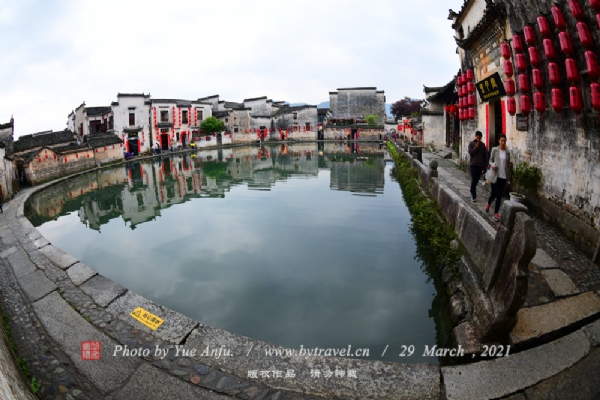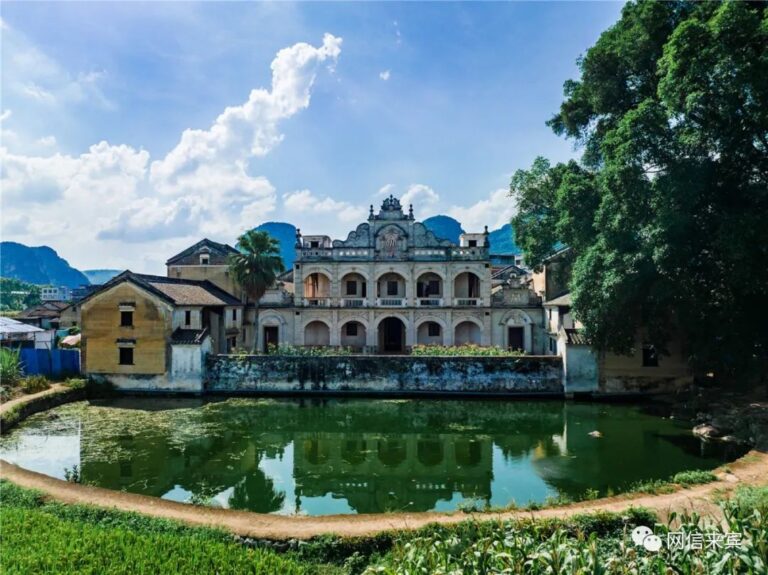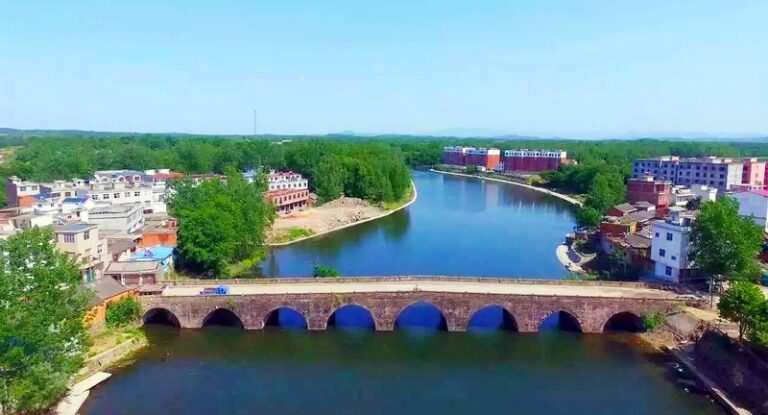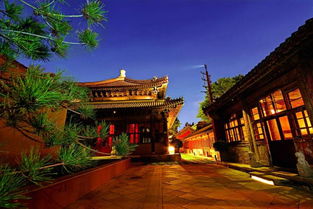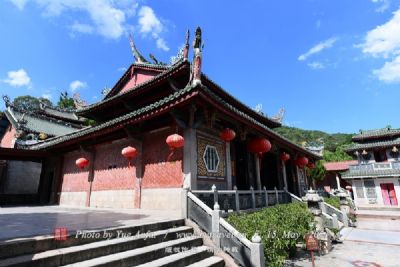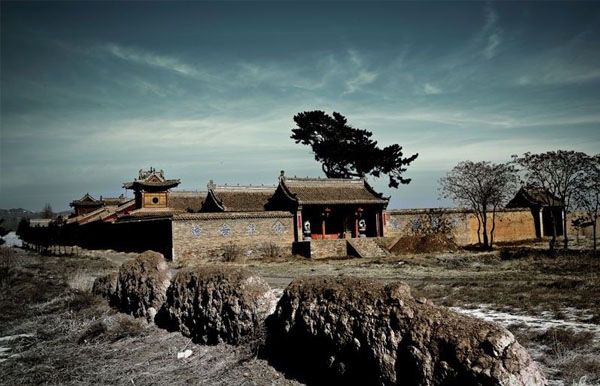A Journey Through History: Exploring Nanping Beiyuan Yubei Yizhi
An Essential Guide to Visiting Nanping Beiyuan Yubei Yizhi
In This Guide
- An Essential Guide to Visiting Nanping Beiyuan Yubei Yizhi
- The Rich History of Nanping Beiyuan Yubei Yizhi
- Main Highlights: What to See at Nanping Beiyuan Yubei Yizhi
- Planning Your Visit: A Practical Guide
- Tickets, Hours, and Booking
- How to Get There
- Local Cuisine and Accommodation
- Frequently Asked Questions
- Final Thoughts on Your Trip
Nestled in the verdant hills of Fujian Province, the Nanping Beiyuan Yubei Yizhi, or Beiyuan Royal Tea Production Site, stands as a testament to China’s rich cultural and agricultural heritage. This archaeological site, located just 15 kilometers northeast of Jian’ou city in the tranquil Dongfeng Town, reveals the long-lost world of imperial tea cultivation that thrived for nearly five centuries. Dating back to the Five Dynasties and Ten Kingdoms period in 933 AD, the Beiyuan tea estate was once revered as the royal tea garden of the Min Kingdom, renowned for producing some of the finest tribute teas that graced the imperial courts.
The site has gained recognition not only as a cherished cultural relic but also as a key to understanding China’s ancient tea history. With over fifty archaeological points discovered since its unearthing in 1985, this historic site showcases the sophisticated techniques used in tea production that were revered by emperors and connoisseurs alike. The Beiyuan tea, particularly famed for its exquisite varieties such as “Long Tuan Feng Bing” and “Mi Yun Long,” earned the title of the “King of Tribute Tea,” a distinction that reflects its unparalleled quality and craftsmanship.
Today, as a nationally protected cultural heritage site, the Beiyuan Yubei Yizhi invites travelers and tea enthusiasts to explore its lush landscapes, delve into the intricate history of tea cultivation, and appreciate the artistry that has persisted through centuries. Visitors can expect not only a journey through time but also a deeper understanding of the significance of tea in Chinese culture, making it a must-visit destination for anyone intrigued by history, agriculture, or simply the art of tea.
The Rich History of Nanping Beiyuan Yubei Yizhi
The Nanping Beiyuan Yubei Yizhi (北苑御焙遗址), located approximately 15 kilometers northeast of Jianou City in Fujian Province, is a significant archaeological site that sheds light on China’s rich tea heritage. This site is renowned for its historical connection to the Beiyuan Imperial Tea Garden, which dates back to the Five Dynasties and Ten Kingdoms period, specifically to the first year of the Min Kingdom under Emperor Longqi in 933 AD. The garden was established as a royal tea production site, and for nearly five centuries, it produced teas that were highly esteemed and served to the imperial court.
Throughout its illustrious history, the Beiyuan tea gained a reputation as “the tea that reigns supreme in the world,” particularly flourishing during the Song Dynasty. Historical records indicate that it was during this time that the garden became the largest official tea garden in the country, surpassing even those in Zhejiang Province, which were previously considered the most prominent. The meticulously crafted teas produced here, such as “Long Tuan” and “Feng Bing,” were celebrated for their exquisite quality and became symbols of prestige.
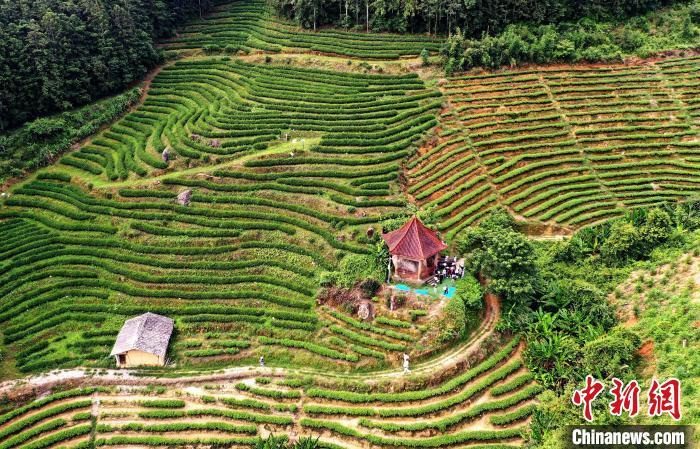
Nanping Beiyuan Yubei Yizhi.
The significance of the Beiyuan tea was recognized by numerous emperors, with the garden serving as a royal tea production center under various dynasties, including the Song, Yuan, and Ming. The production process was highly regulated, with strict guidelines governing the plucking, processing, and tribute of the tea. Each year, teas from Beiyuan were presented as tributes to the emperor, highlighting their esteemed status. Notably, the Ming Dynasty’s founder, Zhu Yuanzhang, acknowledged the labor-intensive nature of the tea production and ultimately ordered a reduction in the tribute, transitioning the focus from pressed tea cakes to loose leaf tea.
In 2006, the Beiyuan Yubei Yizhi was designated as a key cultural relic protection unit by the State Council of China, affirming its importance in the study of ancient Chinese tea culture. The archaeological discoveries at the site, which began in 1985, have revealed more than fifty relic points, offering crucial insights into the ancient practices of tea cultivation and production.
The Beiyuan Yubei Yizhi not only represents a pivotal chapter in the history of Chinese tea but also serves as a cultural landmark that connects past traditions to contemporary practices. As efforts to preserve and promote the site continue, it stands as a testament to the enduring legacy of tea culture in Fujian and its significant role in China’s historical narrative.
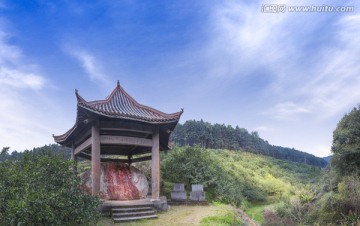
Nanping Beiyuan Yubei Yizhi.
Main Highlights: What to See at Nanping Beiyuan Yubei Yizhi
Nestled in the tranquil hills of Fujian Province, the Nanping Beiyuan Yubei Yizhi (北苑御焙遗址) offers a captivating glimpse into China’s rich tea heritage. This significant archaeological site, located approximately 15 kilometers northeast of Jian’ou City, was once the royal tea garden during the Five Dynasties and Ten Kingdoms period (907-960 AD) and continued to thrive until the Ming Dynasty. Here are the key highlights of this remarkable destination:
Historical Significance
The Beiyuan Yubei site is recognized as a National Key Cultural Relic Protection Unit. It is renowned for its historical significance as the birthplace of the legendary Beiyuan tea, which was highly esteemed by emperors and nobility alike. The tea’s origins can be traced back to the year 933, during the reign of the Min Kingdom, where it was celebrated as “the finest tribute tea under heaven.”
Cultural Heritage
For nearly 460 years, Beiyuan tea was a staple at the imperial court, earning the title of “the tea that crowns the world.” The site showcases the intricate processes involved in tea production, including the meticulous methods used to cultivate and process tea leaves, which were strictly regulated to maintain the highest quality. Visitors can explore remnants of ancient tea processing facilities and gardens that once flourished with this royal beverage.
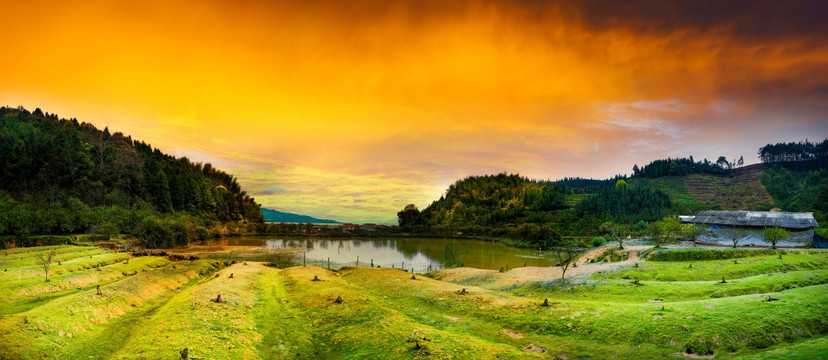
Nanping Beiyuan Yubei Yizhi.
Archaeological Discoveries
Since its discovery in 1985, over fifty archaeological sites have been unearthed within the Beiyuan area. These findings include well-preserved artifacts related to tea production, providing invaluable insights into the agricultural practices and cultural customs of ancient China. The site serves as a pivotal point for researchers studying the history of tea in China and offers a tangible connection to the past.
Scenic Beauty
The Beiyuan Yubei site is also celebrated for its stunning natural surroundings. Visitors can enjoy picturesque views of the nearby Fengshan tea plantation and rolling hills, making it a perfect spot for photography and relaxation. The serene landscape enhances the overall experience, allowing travelers to immerse themselves in the tranquil ambiance that once inspired tea artisans.
Nearby Attractions
While visiting the Beiyuan Yubei site, travelers can also explore other historical landmarks in the vicinity, such as the Zhu Xi Ruins, the Jian’ou Baoyun Temple, and various ancient kiln sites. These sites complement the cultural exploration of the region and provide a deeper understanding of Fujian’s rich history.
In summary, the Nanping Beiyuan Yubei Yizhi is not just a site of archaeological importance; it is a gateway to understanding the art of tea in China. With its blend of historical significance, cultural heritage, and natural beauty, it offers a unique experience for those interested in the ancient traditions that shaped Chinese society.
Planning Your Visit: A Practical Guide
Visiting Nanping Beiyuan Yubei Yizhi, the historical site of the North Garden Imperial Tea Production, offers a unique glimpse into China’s rich tea culture and heritage. This guide will help you navigate your visit to this important cultural landmark in Fujian Province.
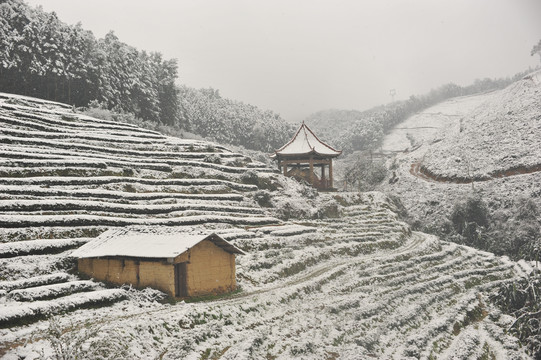
Nanping Beiyuan Yubei Yizhi.
Location and Access
The Beiyuan Yubei Yizhi is located approximately 15 kilometers northeast of Jian’ou City, within the Jingfengshan Tea Plantation in the Dongfeng Town area. The site is well-connected by road, making it accessible by car or public transportation from the city center of Jian’ou. Local taxis and ride-hailing services are also readily available.
Best Time to Visit
The ideal time to visit is during the spring and early summer months (March to June) when the tea plants are lush and the weather is pleasantly mild. This period not only allows you to appreciate the natural beauty of the tea gardens but also to experience tea picking, if the timing aligns with the harvest season.
What to See
Upon arrival, you will discover the remnants of the imperial tea garden, which was once a royal tea production site during the Five Dynasties and Ten Kingdoms period. Key highlights include:
- Historic Ruins: Explore over fifty archaeological sites that reveal the grandeur of the ancient tea production process.
- Tea Picking Demonstrations: Participate in or observe traditional tea picking, offering insight into the meticulous methods that have been used for centuries.
- Cultural Exhibits: Visit local museums and cultural centers nearby that showcase the history of tea in the region, including artifacts and historical documents.
- Natural Scenery: The surrounding landscape is picturesque, with rolling hills and lush tea fields ideal for photography and leisurely walks.
Facilities and Amenities
While the site maintains a historical atmosphere, essential visitor amenities are available, including:
– Visitor Center: Provides information, maps, and guides about the site and surrounding areas.
– Rest Areas: Designated spots for resting and enjoying the view of the tea plantations.
– Local Vendors: Small shops selling local tea products, souvenirs, and snacks are scattered around the area, allowing you to take a piece of the experience home.
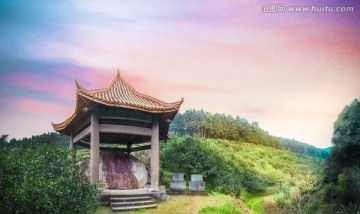
Nanping Beiyuan Yubei Yizhi.
Tips for Visitors
- Dress Appropriately: Wear comfortable clothing and shoes suitable for walking, as you may spend a significant amount of time exploring the gardens and ruins.
- Hydrate: Bring water, especially during warmer months, as you may be walking around for extended periods.
- Learn the Culture: Engage with local guides and staff to gain deeper insights into the history of Beiyuan tea. Understanding the significance of the site enhances your visit.
- Respect the Environment: As a historical site, it’s important to follow guidelines and rules to help preserve the area for future visitors.
Nearby Attractions
While visiting Beiyuan Yubei Yizhi, consider exploring nearby attractions:
– Jian’ou Confucian Temple: A peaceful place of worship and learning, showcasing traditional architecture and cultural exhibits.
– Zhuhui Temple: Known for its tranquil setting and beautiful surroundings, perfect for a quiet afternoon.
– Tea Plantations: Explore more of the local tea culture by visiting surrounding plantations that offer tastings and tours.
Conclusion
A visit to Nanping Beiyuan Yubei Yizhi is more than just a trip to a historical site; it’s an opportunity to immerse yourself in the profound heritage of Chinese tea culture. By planning ahead and taking the time to appreciate the intricate history and stunning landscapes, you will create lasting memories in this remarkable part of Fujian Province.
Tickets, Hours, and Booking
Visiting Nanping Beiyuan Yubei Yizhi is a captivating experience that allows you to delve into the rich history of tea cultivation in China. Here’s what you need to know about tickets and access to this remarkable historical site.
Admission Fees
- General Admission: The entrance fee is typically around 30 RMB (approximately $4.50 USD) per person. This fee grants access to the archaeological site and its surrounding areas, where you can explore the remnants of the ancient royal tea garden.
- Discounted Rates: Students, seniors, and children under a certain height may qualify for reduced ticket prices, usually around 15 RMB (approximately $2.25 USD). It’s advisable to carry an ID for verification.
- Group Discounts: If you’re traveling with a group, inquire about special rates that may apply for larger parties, which can often reduce the per-person cost.
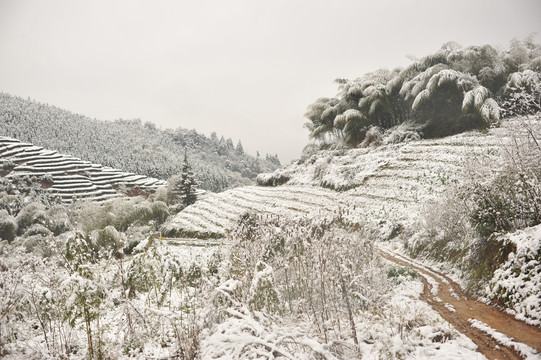
Nanping Beiyuan Yubei Yizhi.
Opening Hours
- Daily Access: The site is open every day from 8:00 AM to 5:00 PM. It’s recommended to arrive early to fully enjoy the historical context and the serene natural surroundings.
How to Purchase Tickets
- On-site Purchase: Tickets can be purchased at the entrance gate. There are usually staff available to assist with the ticketing process, ensuring a smooth entry.
- Online Reservations: For convenience and to avoid potential queues, some travelers prefer to purchase tickets in advance through local travel websites or tourism apps.
Getting There
- Location: Beiyuan Yubei Yizhi is located approximately 15 kilometers northeast of downtown Jian’ou City, in the Dongfeng Town area. It can be reached by local transport options, including buses and taxis.
- Transportation Tips: Consider hiring a local guide or joining a tour group that includes transportation to enhance your experience and gain deeper insights into the site’s historical significance.
Additional Notes
- Best Time to Visit: Spring and autumn are ideal seasons for visiting, as the weather is pleasant and the tea gardens are vibrant with greenery.
- What to Bring: Ensure you have comfortable walking shoes, a camera for capturing the beautiful landscapes, and water to stay hydrated while exploring.
This site not only offers a glimpse into the historical significance of tea culture in China but also provides a picturesque setting for a day of exploration and learning. Enjoy your visit to Nanping Beiyuan Yubei Yizhi!
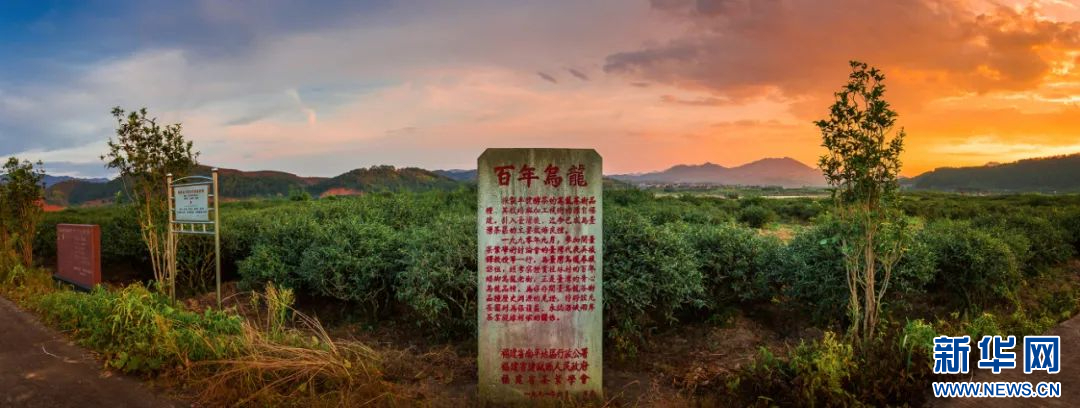
Nanping Beiyuan Yubei Yizhi.
How to Get There
Reaching Nanping Beiyuan Yubei Yizhi, located in Fujian Province’s Jianou City, offers a blend of convenience and scenic beauty. This historical site, famed for its rich tea culture and royal heritage, is accessible through various transportation options, making it an appealing destination for both local and international travelers.
By Air
The nearest major airport is Wuyi Mountain Airport (WUS), approximately 80 kilometers from Jianou City. This airport offers domestic flights from major cities including Beijing, Shanghai, and Guangzhou. From the airport, visitors can hire a taxi or use ride-sharing services to reach Jianou City. The drive typically takes around 1.5 hours.
By Train
Jianou has a well-connected train station that serves as a key transit point in the region. High-speed trains from cities like Fuzhou and Xiamen arrive regularly, with travel times averaging 2 to 3 hours. Once you arrive at Jianou Railway Station, you can take a local taxi or bus to reach the Beiyuan Yubei Yizhi site.
By Bus
For those traveling from nearby cities, long-distance buses are a convenient option. Buses from Fuzhou, Xiamen, and Nanping are frequent, with services to Jianou City. The journey from Nanping typically takes about 1 hour. Upon arriving at the Jianou bus station, local taxis are readily available for hire.
Local Transport
Once in Jianou, public transportation options such as buses and taxis can be utilized to get to the Beiyuan Yubei Yizhi site. The historical site is located about 15 kilometers northeast of the city center, specifically in the Dongfeng Town area. Local taxis are the most efficient means of transport, offering a direct route to the site in approximately 30 minutes.
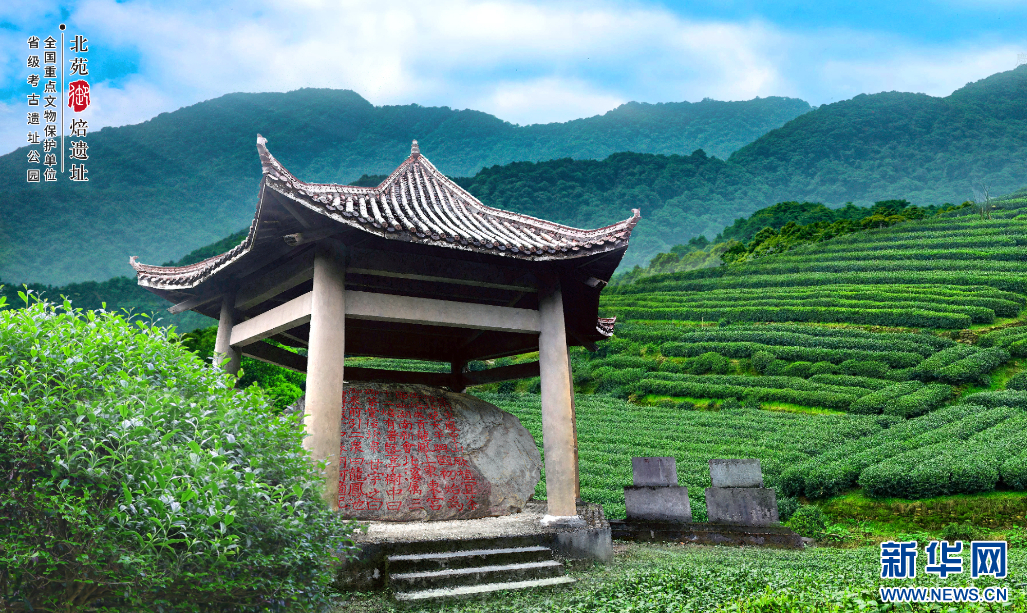
Nanping Beiyuan Yubei Yizhi.
Car Rentals
For those who prefer to drive, car rental services are available in Jianou City. This allows for greater flexibility to explore surrounding attractions and scenic routes at your own pace. The roads are generally in good condition, and GPS navigation aids are widely accessible.
Biking and Walking
For the adventurous traveler, biking or walking can provide a unique way to explore the region’s natural beauty. The area surrounding Beiyuan Yubei Yizhi features picturesque landscapes, making it a delightful experience for those who enjoy outdoor activities.
Accessibility
The site is generally accessible for visitors, but it is advisable to check in advance for any specific needs regarding accessibility for persons with disabilities. Local transportation services can often accommodate special requests.
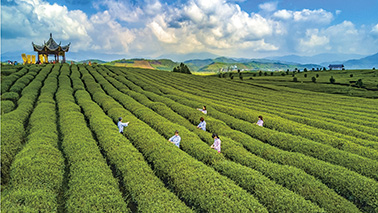
Nanping Beiyuan Yubei Yizhi.
With these various transportation options, visiting Nanping Beiyuan Yubei Yizhi is both feasible and enjoyable, allowing travelers to immerse themselves in the rich cultural heritage of this historic tea site.
Local Cuisine and Accommodation
When visiting the historic site of Nanping Beiyuan Yubei Yizhi, a journey steeped in tea culture and ancient royal traditions, you’ll find yourself surrounded by the lush landscapes of Fujian Province. To enhance your experience, here are some delightful food and accommodation options in the nearby area.
Culinary Delights
1. Local Tea Houses
Given the rich tea heritage of the Beiyuan region, a visit to a local tea house is a must. You can sample a variety of teas, including the renowned Beiyuan tea, which has a storied legacy dating back to the Song Dynasty. Many tea houses offer tea tasting sessions alongside traditional snacks, allowing you to immerse yourself in the local culture. Look for places like Fengshan Tea House, where you can enjoy freshly brewed tea while overlooking the beautiful tea gardens.
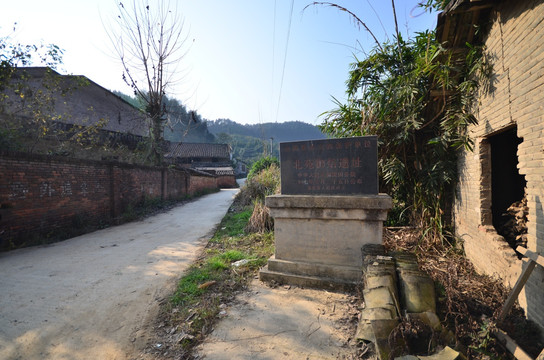
Nanping Beiyuan Yubei Yizhi.
2. Local Cuisine
Fujian cuisine, known for its delicate flavors and fresh ingredients, is abundant in the region. Try local specialties such as Peach Blossom Cake, a sweet treat made with glutinous rice flour, or Fujian Braised Pork, which is rich in flavor and often served with rice. Restaurants like Jianou Xiaoguan provide an authentic dining experience, serving dishes that reflect the rich culinary traditions of the area.
3. Street Food
For a more casual dining experience, explore the local street food scene. Vendors often sell stir-fried bamboo shoots, tea eggs, and freshly steamed buns. The bustling markets near the site are perfect for sampling these local delicacies, each bite telling a story of the region’s agricultural bounty.
Where to Stay
1. Beiyuan Tea Resort
For an immersive experience, consider staying at the Beiyuan Tea Resort. This eco-friendly accommodation is nestled within the tea gardens, providing guests with breathtaking views and easy access to tea-picking activities. The resort features traditional decor, comfortable rooms, and offers guided tea tours that delve into the history and craftsmanship of Fujian tea.
2. Jian’ou Hotel
Located in Jian’ou, just a short drive from the Beiyuan site, the Jian’ou Hotel offers modern amenities with a touch of local charm. Guests can enjoy spacious rooms, a restaurant serving local cuisine, and easy access to nearby attractions. It’s an excellent base for exploring the rich historical landscape of the area.
3. Guesthouses
For a more intimate experience, consider staying in one of the charming guesthouses scattered throughout the countryside. Places like Phoenix Mountain Guesthouse offer cozy accommodations with home-cooked meals, allowing you to connect with local families and experience authentic rural life.
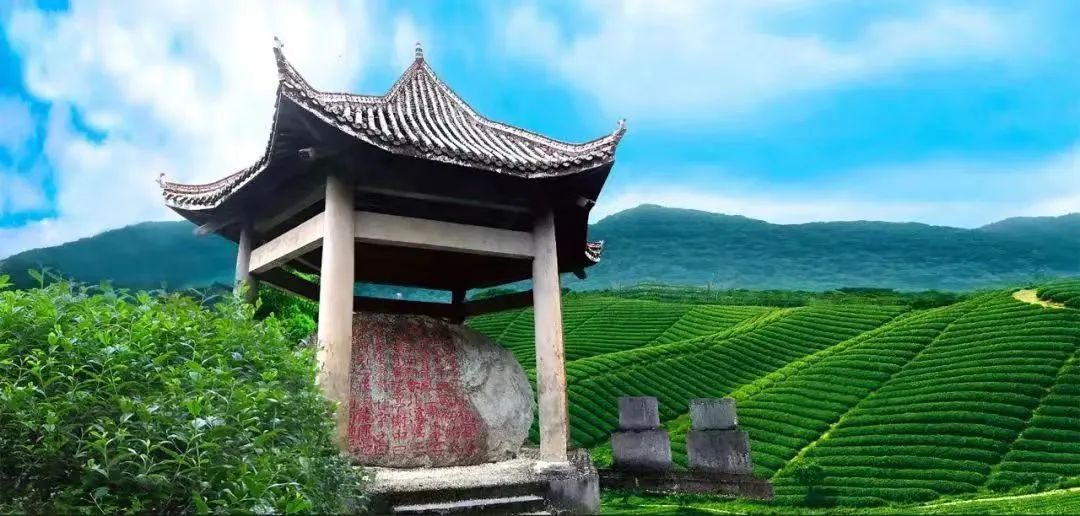
Nanping Beiyuan Yubei Yizhi.
With these food and accommodation options, your visit to Nanping Beiyuan Yubei Yizhi will be enriched by the flavors and comforts of Fujian Province, leaving you with unforgettable memories of this historic tea region.
Frequently Asked Questions
Frequently Asked Questions about Nanping Beiyuan Yubei Yizhi
1. What is the historical significance of the Nanping Beiyuan Yubei Yizhi?
The Nanping Beiyuan Yubei Yizhi, recognized as a key cultural relic site in China, is notable for its rich history as a royal tea garden during the Five Dynasties to the Ming Dynasty. It is famed for producing the esteemed Beiyuan tribute tea, which was highly regarded by emperors over a period of 458 years, starting from 933 AD.
2. Where is Beiyuan Yubei Yizhi located?
The site is situated approximately 15 kilometers northeast of Jian’ou City in Fujian Province, specifically in the Dongfeng Town area, within the Jin Fengshan Tea Plantation.
3. How can I reach Beiyuan Yubei Yizhi?
Visitors can reach the site by car or public transport from Jian’ou City. Local taxi services and ride-sharing options are also available for a more direct route.
4. Are there any guided tours available?
Yes, guided tours are available, offering insights into the historical context and significance of the site, as well as the tea production techniques used during its peak. It’s recommended to book these in advance, especially during peak tourist seasons.
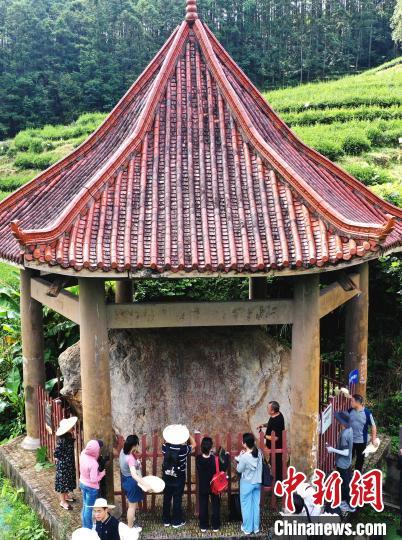
Nanping Beiyuan Yubei Yizhi.
5. What can visitors expect to see at the site?
Visitors will find various archaeological remnants, including the remains of ancient tea processing facilities, stone inscriptions, and traditional tea gardens. The site is also surrounded by picturesque landscapes typical of Fujian’s hilly terrain, making it a scenic spot for photography.
6. Is there an entry fee for Beiyuan Yubei Yizhi?
As of now, there is typically no entry fee to visit the Beiyuan Yubei Yizhi, but it’s advisable to check local tourism websites for any updates or changes to this policy before your visit.
7. What is the best time to visit Beiyuan Yubei Yizhi?
The ideal time to visit is during spring (March to May) and autumn (September to November) when the weather is mild, and the natural scenery is most beautiful. Additionally, these seasons align with tea picking events, which can enhance the experience.
8. Are there any nearby attractions to explore after visiting Beiyuan Yubei Yizhi?
Yes, nearby attractions include the Zhu Xi Ruins, Jian’ou Baoning Temple, and various local tea plantations. These sites offer a deeper understanding of the region’s culture and historical significance, as well as opportunities to experience local tea specialties.
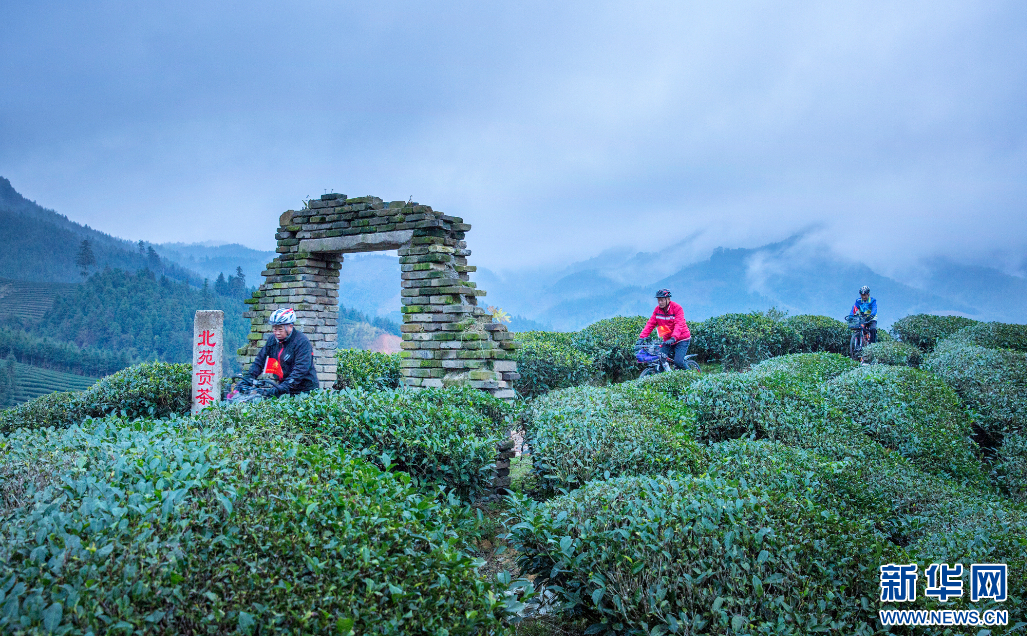
Nanping Beiyuan Yubei Yizhi.
Final Thoughts on Your Trip
Visiting the Nanping Beiyuan Yubei Yizhi offers a unique glimpse into China’s rich tea culture and imperial history. This ancient site, with its roots tracing back to the Five Dynasties, not only tells the story of tea’s evolution but also highlights the significance of the region in the broader narrative of Chinese heritage. As you walk through the remnants of what was once a royal tea garden, you are invited to reflect on the craftsmanship and dedication that went into producing some of the finest teas in history.
The legacy of Beiyuan tea is not merely about the beverage itself but also embodies the artistry, tradition, and community spirit that have flourished over centuries. As you explore this remarkable site, consider how it connects to modern tea culture, inspiring new generations to appreciate and cultivate the same passion for quality and sustainability.
In a world that often rushes forward, the Beiyuan Yubei Yizhi stands as a testament to the importance of honoring our past while looking toward the future. Let this journey into history awaken your senses and inspire you to embrace the timeless traditions of tea, fostering a deeper appreciation for the intricate tapestry of culture that surrounds us. Your visit not only enriches your own experiences but also supports the ongoing preservation of this invaluable heritage for future generations.
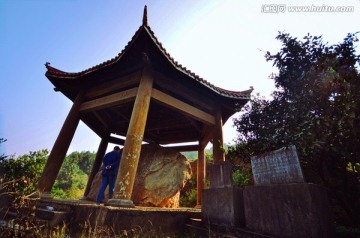
Nanping Beiyuan Yubei Yizhi.
